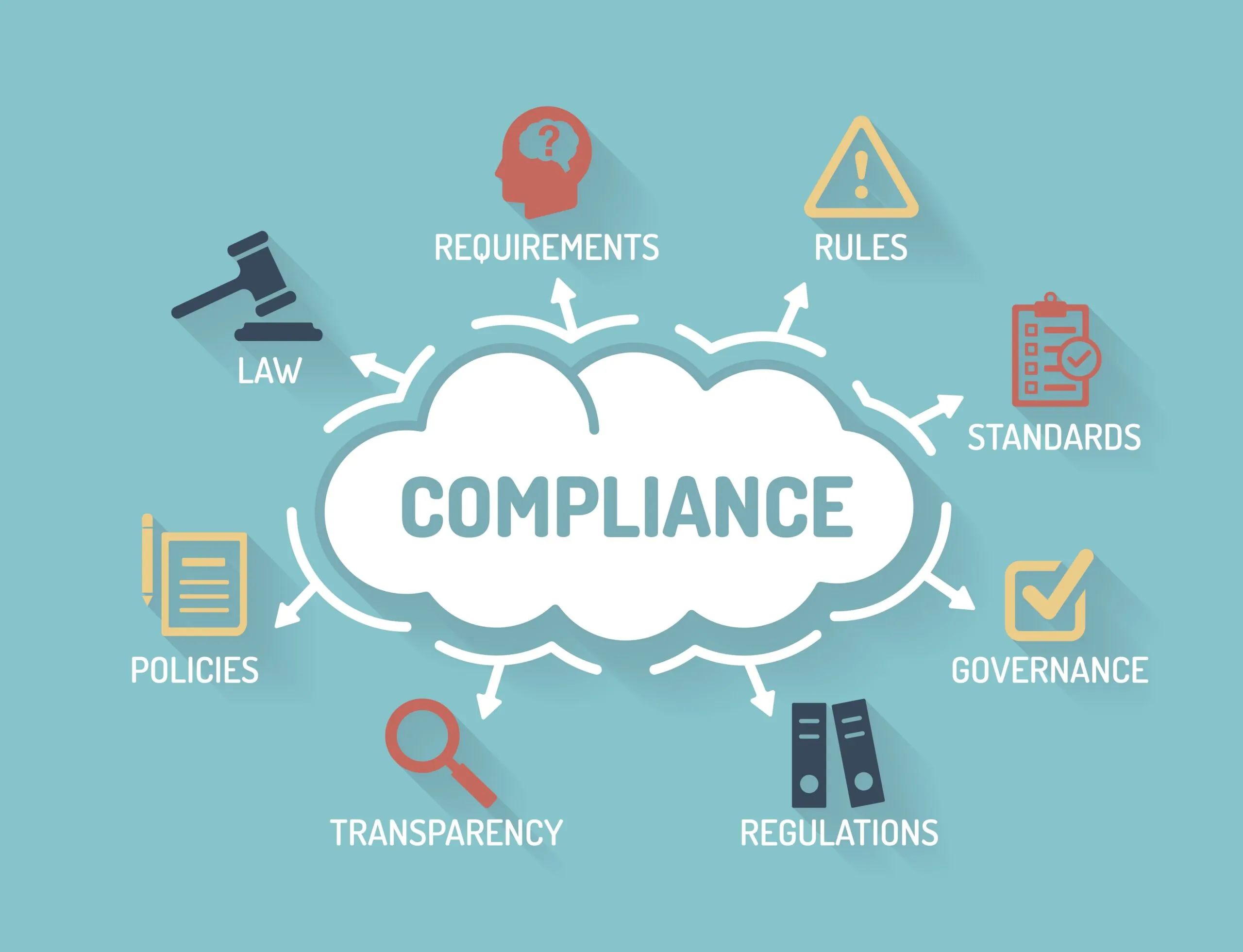In today’s digital age, data is often called the new gold. This precious resource fuels business operations, drives decision-making, and serves as the lifeblood of industries worldwide. The freight industry, in particular, relies heavily on the seamless exchange of data to ensure the efficient movement of goods. Data plays a pivotal role in every aspect of the freighting ecosystem, from tracking shipments to managing inventory.
However, as data takes center stage, so do the risks associated with its security. The digital frontier has challenges, and ensuring the safety of sensitive information has become paramount. In this blog, we delve into the world of data and cybersecurity in freighting, exploring the threats, solutions, and best practices that can safeguard your digital assets.
Supply Chains Data & it
Gone are the days of manual record-keeping, cumbersome paperwork, and communication delays. In their place, sophisticated data-driven technologies have taken the helm, offering logistics companies unprecedented insights and capabilities.
This transformation’s heart is data—volumes of it- streaming in from various sources within the freighting ecosystem. Data has become the industry’s lifeblood, from telematics devices on trucks providing real-time location and performance data to sophisticated inventory management systems optimizing warehouse operations. Every shipment, every route, and every decision is now intricately tied to the information flowing through digital channels.
The significance of this data cannot be overstated. It has empowered companies like FreightCenter to streamline operations, improve route planning, and respond dynamically to shifting market demands.
However, as the freighting industry embraces this data-driven era, it faces new challenges, with data security at the forefront. The more interconnected the sector becomes, the more vulnerable it becomes to cyber threats. As FreightCenter increasingly relies on digital systems for core operations, safeguarding our data against breaches, theft, and other malicious activities has become paramount.
Ways Your Supply Chains Data Can Be Breached
A common vulnerability is the human element. Social engineering attacks, such as phishing and pretexting, target employees and exploit their trust or lack of awareness. A seemingly innocuous email or a phone call can be the gateway for hackers to gain unauthorized access to your systems. Additionally, weak or compromised credentials can provide an easy entry point. If employees use easily guessable passwords or reuse them across multiple accounts, it becomes child’s play for cybercriminals to breach your systems.
Outdated or unpatched software is another Achilles’ heel. Hackers often exploit known vulnerabilities in software to gain access. Regularly updating and patching your systems is akin to sealing potential entry points, making it significantly harder for attackers to find a way in.
Moreover, intentional or accidental insider threats must be noticed. Employees or contractors with access to sensitive data can compromise it intentionally or inadvertently. Implementing access controls and monitoring systems can help mitigate this risk.
Finally, the rise of remote work has expanded the attack surface. Unsecured home networks and personal devices can be conduits for data breaches if not adequately protected. Ensuring that remote work environments adhere to robust security measures is essential in today’s digital landscape.
Understanding these potential breaches is the first step toward safeguarding your data. By addressing these vulnerabilities, freighting companies can build a resilient defense against cyber threats.
What Are These Hackers Are Looking For?
In the cat-and-mouse game of cybersecurity, understanding the motives and objectives of hackers is essential. Freighting companies must know what these cyber criminals seek when attempting to breach their data fortresses.
Financial gain remains a significant driver for cyberattacks. Data breaches can lead to extortion attempts, where hackers demand ransom payments for not disclosing sensitive data. They may also seek to steal financial information, such as credit card details or banking credentials, for direct monetary gain.
Intellectual property theft is another common goal. FreightCenter, as an example, develops proprietary technologies, route optimization algorithms, or innovative logistics solutions. By compromising a freighting company’s systems, they can disrupt shipments, cause delays, or create chaos within the logistics network. However, it can have far-reaching consequences, affecting the targeted company, its customers, and its partners.
Espionage and corporate espionage are also motives. Nation-states or competitors may seek to gather intelligence about a freighting company’s operations, partnerships, or plans. That information could be exploited for political, economic, or competitive advantage.
Furthermore, hacktivism remains a factor.
By understanding hackers’ objectives, freighting companies can better tailor their cybersecurity measures to protect against specific threats. It’s a dynamic landscape where adaptability and vigilance are crucial to staying one step ahead of cybercriminals.
Navigating the Data Security Tightrope
The freighting industry is tasked with navigating a delicate tightrope walk—how to harness the immense benefits of data while effectively mitigating the risks that come with it. Data security is no longer an option; it’s a necessity, and having the right partners and team around you to review and protect your information is ideal.

A breach can disrupt operations and erode trust among customers and partners. It can lead to financial losses, regulatory fines, and irreparable damage to reputation. To fully understand the implications, one must consider the types of data freighting companies handle. It ranges from sensitive customer information and proprietary route optimization algorithms to detailed cargo manifests and real-time location data of valuable shipments, each of these data points represents a potential target for cybercriminals, and the consequences of a breach extend far beyond the digital realm.
The Role of Encryption and Authentication In Freighting
Data flows continuously between various points in the supply chain, and securing this data is paramount. Encryption and authentication have emerged as indispensable tools in data security.
Encryption, in its essence, is the process of converting sensitive data into an unreadable format, rendering it unintelligible to anyone without the authorized decryption key. It’s akin to encoding your message in an unbreakable cipher before sending it. In freighting, this translates to safeguarding essential information like shipment details, client records, and financial transactions.
However, more than encryption is required. Enter authentication—a process that verifies the identity of users and ensures that they have legitimate access to the encrypted data. It’s like having a secure lock on your data; only those with the correct keys or credentials can unlock it.
The dynamic duo of encryption and authentication works to fortify data security in freighting. They provide an impenetrable shield against unauthorized access, ensuring that the data within remains safe from prying eyes even if a breach occurs. Together, they uphold the integrity and confidentiality of vital information, making them indispensable components of a robust cybersecurity strategy.
Compliance and Regulations in Freighting
The freighting industry is not just subject to the laws of logistics and supply chain management bound by a web of regulations designed to protect the integrity and security of data. Compliance with these regulations is not merely a legal obligation—it’s a fundamental element of preserving trust in the industry.
One such regulation is the General Data Protection Regulation (GDPR), which governs the handling personal data within the European Union. For freighting companies like FreightCenter engaged in international shipments, GDPR compliance is a necessity. It necessitates meticulous data handling procedures, stringent security measures, and transparency in data processing.
Similarly, the Health Insurance Portability and Accountability Act (HIPAA) comes into play when freight involves medical equipment, pharmaceuticals, or healthcare-related data. Ensuring that these sensitive shipments adhere to HIPAA standards is not just about avoiding penalties; it’s about safeguarding sensitive patient information and maintaining the highest standards of integrity.

Beyond these specific regulations, freighting companies must also consider industry-specific guidelines and regional laws that pertain to data security. Compliance often involves intricate record-keeping, rigorous audits, and continuous monitoring—a significant undertaking showcasing the industry’s data protection commitment; compliance and regulations in freighting go hand in hand with data security. They guide companies toward ethical data practices and assure customers that their data is handled with the utmost care and responsibility.
Employee Training and Awareness
While advanced technologies and sophisticated security measures are vital components of data security, the human element can’t be underestimated. Employees within freighting companies play a pivotal role in maintaining data integrity, making comprehensive training and awareness programs necessary.
Consider this scenario: a phishing email arrives in an employee’s inbox, seemingly harmless but containing a malicious link. Without proper training, that employee might unwittingly click on the link, opening the door to potential cyber threats. This is just one example of how human error can inadvertently compromise data security.
Comprehensive training programs equip employees with the knowledge and tools to recognize and respond to potential threats effectively. They learn to identify phishing attempts, practice secure password management, and understand the importance of keeping sensitive information confidential.

Moreover, fostering a culture of cybersecurity awareness is essential. It’s about instilling a mindset where every employee, from the warehouse to the boardroom, understands their role in protecting data. Regular reminders, updates on emerging threats, and a transparent chain of reporting security concerns can all create a resilient line of defense.
Having a Partner That Helps
In this digitally charged landscape, companies like FreightCenter must recognize that their data is an asset and a potential liability. A breach can disrupt operations and erode trust among customers and partners. It can lead to financial losses, regulatory fines, and irreparable damage to reputation.
As FreightCenter continues to embrace digital transformation, the importance of data and cybersecurity cannot be overstated. Safeguarding our digital assets is a matter of compliance and a fundamental aspect of maintaining trust with customers and partners. By understanding the threat landscape, implementing robust security measures, and fostering a cybersecurity awareness culture, you can confidently navigate the digital frontier.
In this ever-connected world, securing our place at the forefront means delivering goods on time and ensuring our digital infrastructure remains impenetrable. The future of freighting is undoubtedly digital, and by prioritizing data security, you are protecting your business and shaping the future of logistics with FreightCenter.

